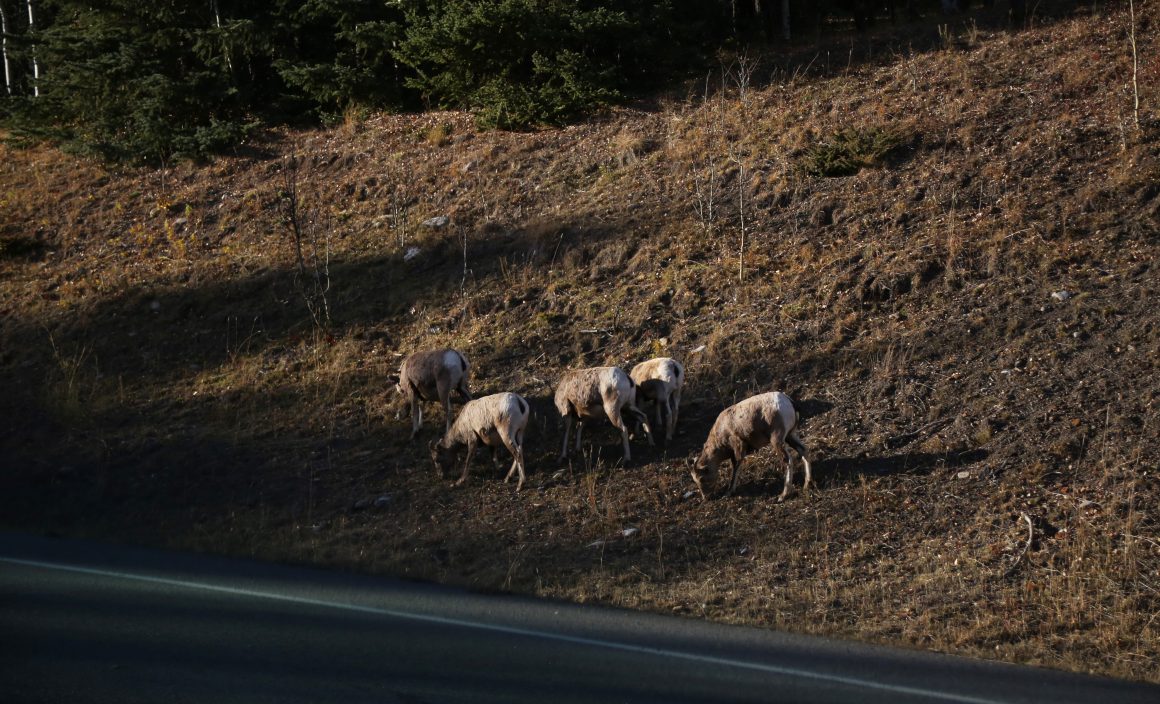
Alberta government’s culling of diseased bighorn sheep could have serious consequences
By Ansharah Shakil, April 10 2023—
Wildlife managers from Alberta Environment and Parks euthanized the remaining members of the Rocky Mountain bighorn sheep male herd in Kananaskis when several of the males contracted a strain of infectious bacterial pneumonia in March. The decision was made out of fear that the disease would spread quickly to the female herd, but done without consulting any experts or Indigenous people.
University of Calgary biologist Dr. Kathreen Ruckstuhl expressed her alarm over the decision. Though she was the one to alert the government on the spread of the disease, she was ultimately not contacted before the culling of the sheep, but said she would have appreciated a heads up and consultation before the decision was carried out.
“Being a woman in science, I’m not sure a male would have been treated the same way,” Ruckstuhl said, speaking on the decision to not consult her or other scientists despite her years of knowledge, and past work and consultation with Wildlife and Parks.
“I know these animals in and out,” she said. “I’ve studied them for close to 30 years.”
Ruckstuhl said that had she been consulted, she would have explained that the immediate culling of the sheep was not strictly necessary.
“[The males were] no immediate threat to the females,” she said. “They’re [currently] not in contact with the females, so there would’ve been time to assess the severity of it, to test them and if they’re positive, either to remove them or even look at some kind of treatment or isolation to give them a chance to potentially survive.”
She added that the disease itself, a bacterium called Mycoplasma ovipneumoniae transmitted by domestic animals, is not always deadly. There have been instances in the United States where immunity has been reached.
One of her biggest concerns is the ripple effect the culling will have on the sheep. Of the population’s 25 adult males, 18 are now dead — most were euthanized. The bighorn sheep’s mating systems work around only a few dominant males who are mainly responsible for the matings and genetics of the population.
Tanisha Henry, a PhD student working under Ruckstuhl, discussed the genetic and social consequences that will occur with so many of those dominant males gone.
“These are bigger males, they’re more socially experienced, so typically the females are more comfortable with them,” Henry said. “They’re of better genetic quality. Most of our adult rams have been removed, and approximately 70 per cent of the paternity is gone just from removing three males.”
The oldest males in the population are now only about three or four years old.
“This will have serious social impacts on the population because these males are not socially experienced,” Henry said. “They don’t know how to court the females and protect them from other males during the mating season, which stresses the females out.”
There could be even more threats to the population of the sheep due to a program called the Minister’s Special Licence (MSL) program which runs outside of the regular hunting season. People and hunters spend money to shoot or hunt bighorn sheep among other animals such as elk, turkey, mulled deer and moose. The program has now been extended to run year-long.
Henry said this change was made mostly with the advice and information of hunters, rather than biologists or ecologists, leading to a lack of understanding of the harm this can cause to these populations.
“Winter specifically is difficult for these organisms,” she said. “They have reduced access to resources, they’re most susceptible to disease, and there’s physical deterioration. So it’s not a good time to be hunting them, it’s not a fair hunt. Similarly, into the spring, they’re recovering from the winter.”
Henry expressed the view that the monetary value of the changes in this program doesn’t seem worth the environmental harm which will likely arise.
“Considering the sheep river population we work with, our males have already been stressed by this disease and the culling, and so to add this on top of it could have very serious consequences for that particular population and populations across Alberta,” said Henry.
Ruckstuhl said it was a disregard for science and it was an oversight to not consult with experts about the matter.
“Consulting scientists and First Nations are, for me, the utmost important things that they should do,” she said.
Henry described the lack of consultation in both cases to be a matter which should be brought to the public’s attention. In order to spread the word, she created two letter templates.
“I wrote two letters to the Environmental Minister of Alberta,” Henry said. “They’re designed for students or anyone else to send, they just have to sign them.”
One of these letters is centred around the culled sheep, and the other is addressing the new hunting regulations that will further harm the population.
Henry hopes that publicly discussing the issue is a good place to start.
“If enough people show interest and concern about this issue, it might motivate the government to do something, or at the very least re-evaluate their approach to wildlife management,” she said.
